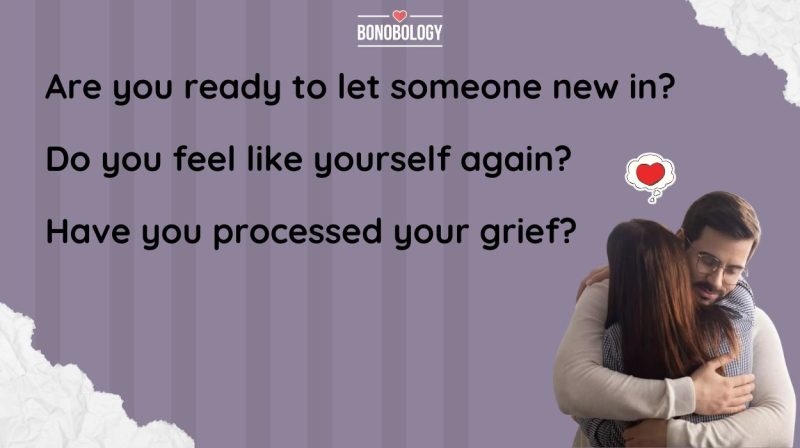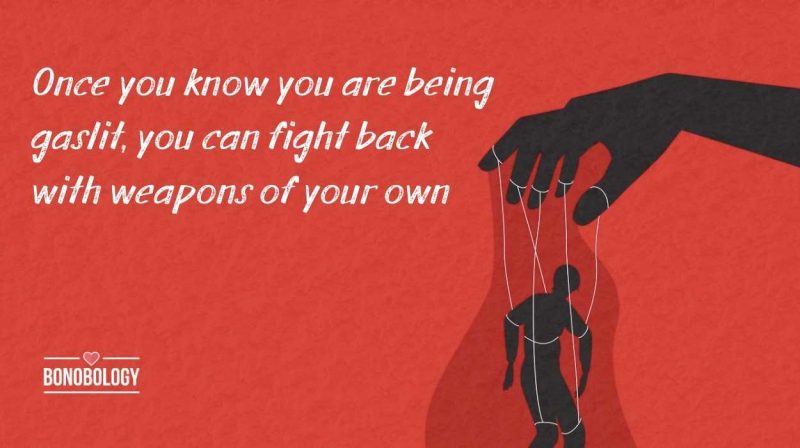At some point, we have all fantasized about what our ideal relationship would be like. Finding that perfect guy or girl who will make life that much brighter and full of joy, and embarking on a journey of happily-ever-after. However, when painting this dreamy picture, most people forget to factor in the relationship challenges that come with the territory.
Even if you find your dream partner, who is everything you had hoped for and more, it is only a matter of time before you start to notice things about them that bother you. Maybe they don’t put the dishes away after you finish eating, or maybe they have trouble letting their guard down and showing their vulnerabilities. These kinds of situations have a way of turning into relationship challenges for couples.
Rather than waiting around for the other shoe to drop, it is better to be prepared for overcoming relationship challenges. Because come they will, and if you stay in denial about turbulence in your romantic paradise, things can get out of hand. So, with insights from premarital and dating coach Geetarsh Kaur, founder of The Skill School which specializes in building stronger relationships, let us look at some of the most common relationship challenges that people face and how to deal with them.
What Are Challenges In A Relationship?
Table of Contents
Before learning how to navigate relationship challenges without letting them take a toll on your bond, it’s important to define what constitutes challenges in a relationship. This is just as crucial as defining the relationship itself, if not more. Since every couple is unique, the challenges they face along the way can also be diverse and eclectic.
While there is no denying that all relationships require a lot of work and come with their own set of hurdles and roadblocks, the nature of old and new relationship challenges can be very different, depending on what the two people in that relationship consider to be challenging. For some, the inability to articulate their thoughts well or communicate effectively can be one of the greatest relationship challenges. For others, carving out quality ‘we’ time can become a contentious issue over time.
Challenges in a relationship can also be determined by your circumstances, culture, upbringing, values, and goals. For instance, long-distance relationship challenges can be very different from those of couples living together. The relationship challenges during COVID – which ranged from not getting enough personal space to pandemic fatigue leading to frequent fights and bickering, and in extreme cases, even abuse – are proof that our circumstances play a role in governing the health of a relationship.
Related Reading: Causes & Signs Of An Emotionally Exhausting Relationship And How To Fix Them
Likewise, the relationship challenges after a child can be markedly different from those experienced by a couple who has just decided on being exclusive. The bottom line is that the definition of challenges in a relationship changes and evolves, depending on what stage of life you’re at, who you are as a person and who you become during the course of a relationship, and what you seek from it.
Amid all these variables, the only constant is that relationship challenges exist every step of the way. You cannot wish them away or overlook them, hoping they’d dissipate. The only way to deal with them is to evolve a strategy for overcoming relationship challenges without letting them damage your bond.
Common Causes Of Relationship Problems
Any issue or difference between a couple that leads to arguments, fights, disagreements, and hostility can amount to a trigger for relationship problems. As we said before, the specific issues can vary depending on a myriad of factors, however, most relationship problems are a symptom of some basic tenets of a healthy partnership lacking from a couple’s equation or not functioning optimally.
Until these foundational deficiencies are fixed, no amount of tips to solve relationship problems can help you weed out the unpleasantness and build a balanced, harmonious bond with your significant other. That’s why it’s important to scratch the surface and identify the core trigger of your problems to prevent your bond from deteriorating into a toxic relationship. Let’s take a look at the most common causes of relationship problems you need to keep an eye out for:
1. Poor communication causes most relationship problems
Most communication problems are triggered by poor or ineffective communication between a couple. If your communication is merely transactional – you discuss logistics, bills, and other everyday essentials but never have a heart-to-heart – or you’re conflict avoidant to an extent that you’d do anything to not set off an argument with your partner or vice versa, you’re dealing with signs of bad communication in the relationship.

This can trigger a host of misunderstandings. When a couple cannot communicate effectively, even the smallest of things can cause problems in a relationship. Because you don’t feel heard and understood by your partner, anything and everything they say may set you off and vice versa. Since the wherewithal to discuss your feelings without triggering a conflict is already lacking, every little misunderstanding can contribute to the build of resentment, thereby threatening the future of the relationship.
2. Lack of trust can be a common cause of discord in relationship
Trust issues can also be a common trigger for problems between a couple and are one of the reasons why relationships fail. The triggers for trust issues can range from lying and infidelity to jealousy, possessiveness, and one partner being too guarded in the relationship. No matter where they’re stemming from, once trust issues take hold, you begin to question everything your partner says or does or vice versa.
The more you suspect and question your partner, the most stifled they may feel in the relationship. Or if the root cause of the trust issues hasn’t been weeded, a partner’s actions can trigger fear and insecurities in the one who is already grappling with a lack of trust in the relationship. This can make you grow apart, leaving room for a host of other relationship challenges to mushroom.
Related Reading: Expert Suggests 7 Ways To Help Someone With Trust Issues
3. Different attachment styles
No matter how much you love your partner and they you, a relationship can become a hotbed of conflict and tension if your attachment styles do not align. For instance, if you both have an insecure attachment style but one partner is avoidant and the other ambivalent, one partner’s need for space and distance and the other’s clinginess and neediness can set in motion a self-feeding cycle of challenges.
Most relationship problems, in such a situation, are a result of the hot-and-cold dance between the two partners, for which there seems to no end in sight. In the end, both partners may find themselves at a point of emotional exhaustion where being together seems like the hardest thing to do.
4. Lack of intimacy in a relationship
The different forms of intimacy in a relationship are like threads that bind a couple together. Without them, a couple cannot sustain the closeness needed to sustain a healthy relationship and tide over the different issues along the way. For instance, if physical or sexual intimacy in a relationship dwindles, partners may experience a continued dip in their oxytocin levels, also known as the love hormone that creates feelings of happiness and helps fight stress.
This can, in turn, reflect in other spheres of their life, including the way they communicate with each other and handle their issues. This is one of the most common causes of relationship challenges after baby. Likewise, a lack of emotional or intellectual intimacy may trigger young relationship challenges, as the two partners struggle to sync their emotional needs, express their desires, and figure out what each needs to thrive in a romantic equation.
Related Reading: 5 Reasons Why Intimacy Among Couples Fades And How You Can Prevent It
5. Lack of respect is among the reasons why relationships fail
If attraction and love bring two people, respect keeps them so. Mutual respect is one of the most basic tenets of a healthy, fulfilling and successful relationship. In its absence, it becomes impossible for couples to hash out their differences and work through even the most basic issues. A lack of respect often leads to contempt, which renowned psychologist Dr. John Gottman identifies as one of the four horsemen that spell doom for a relationship.
When you don’t respect your partner or they don’t respect you, you don’t value their opinions, ideas or value system enough to factor them in when making decisions big or small. You tend to become dismissive of your partner and it reflects in the way you treat them and your relationship. Even the smallest things can cause problems in a relationship where there is no respect for one another.
For more expert insights into couple relationships, please subscribe to our YouTube channel
11 Relationship Challenges Almost Everyone Has To Face
Samantha and Ricky have been together for 15 years. From dating as coworkers to walking down the aisle, raising two kids, and braving a pandemic together, their relationship has crossed several milestones and navigated rough waters along the way. Along the way, they have dealt with most relationship problems that couples have to contend with. From young relationship challenges to relationship challenges after baby, they seem to have seen it all.
They believe that even though the nature of relationship challenges a couple faces in different stages of their life change, certain core issues become the breeding ground for all troubles. According to Samantha and Ricky, consistent effort, respectful and honest communication, and a never-give-up attitude is what it takes to tide over these challenges and weather the storms as a team.
If a couple can learn to overcome these when they emerge as new relationship challenges, tackling other issues and problems becomes easier. What are these core relationship challenges and what can you do to subvert them? Let’s find out:
1. Communication is among the most common relationship challenges
The common saying “communication is key” isn’t an empty phrase. Communication can be the difference between a healthy relationship and one filled with misunderstandings and hurt. But communication is not just talking. People can talk superficially but that won’t solve any relationship challenges.
Especially in new relationships, challenges in communication are rampant. You are just getting to know each other and things may seem great but this is when communication is most important. You’re in the honeymoon phase and willing to forgive any issues that you might be facing but you aren’t doing yourself any favors by ignoring the elephant in the room.
Geetarsh says, “The greatest fear when it comes to communication is being misunderstood.” You don’t want to ruin a good thing by expressing a thought that you think your partner won’t understand, but give them the credit of being a good enough listener to hear you out.
How to overcome communication issues in a relationship
Communication. Communication. Communication. There is no alternative to resolving your issues as a couple than sitting down and having an honest, reconciliatory conversation about it. One of the reasons why relationships fail is that more often than not people keep sweeping their issues under the carpet out of the fear of confrontation rather than face them head on. Here is how you can avoid this common pitfall:
- Rather than put off the inevitable conversations make sure that you make your views known so that you can build the foundation of a strong relationship
- Find new things to talk to avoid boredom in the relationship
- Make an effort to communicate about everyday necessities to avoid issues for taking a grip in a long-term relationship
- Don’t just communicate about the things you don’t like, make an effort to express your feelings for your partner. Don’t take it for granted that they know how you feel
Related Reading: 8 Ways To Get Out Of An Unhealthy Relationship
2. Not setting expectations realistically
This can be among the make-or-break relationship challenges for couples. You have just gotten into a relationship and you have all these ideas about what it should be like. However, people are rarely what you expect them to be. You might like 90% of a person, but the remaining 10% can make a huge difference.
The difference between a relationship that lasts and one that fades with time is the ability to manage expectations realistically and accept what is in front of you. No one can fit the bill of that ‘perfect partner’ that you have built in your head.
If you believe that the relationship is worth the effort, then any challenge can be overcome. Having said that, a majority of relationship challenges for couples arise from an inability to reconcile with the good and the bad that both partners bring to the equation.
How to overcome mismatched expectations
Expectation setting is one of the most crucial, but often overlooked, aspects of building a lasting relationship with your significant other. That’s why one of the most important tips to solve relationship problems we have for you is to express your expectations and understand your partner’s, so that you can find the right balance where neither partner feels unheard or unseen.
“It is very important to set boundaries and expectations. Regardless of gender, we all have to compromise for the success of a relationship. This isn’t a sacrifice but rather letting go for the benefit of the relationship,” advises Geetarsh. Here’s how you can work through mismatch expectations in a relationship:
- Identify whether the difference in expectations is severe. If they don’t like the same food as you, it shouldn’t be a huge issue. However, if they do not meet your base expectations, that is another matter entirely
- If your partner does not meet some minor expectations, you should try to understand that everyone has a different temperament and love language
- Trying to mold your partner into a version that you prefer isn’t going to bode well for the future
- Identify your non-negotiable expectations in the relationship, ask your partner to do the same
- Work toward finding a middle ground where you each make an effort to fulfill the other’s non-negotiable expectations while compromising on your own non-important ones
3. Being honest is one of the relationship challenges for couples
Honesty may seem like a given in any relationship. However, in practice, it can be harder than it seems. You may always want to present your best self to your significant other but that isn’t feasible in the long term. Practicing honesty with your partner lays the groundwork for a functional relationship. You might not always be on the same page but, as long as you are honest you can bring your real self to the partnership.
Many people run into this relationship challenge because they feel they cannot be vulnerable with their partners. However, this dishonesty in a relationship only starts a vicious cycle. You start being dishonest because you have things you wish to hide but this forces you into other lies which eventually creates a wall between you and your partner.
Having said that, it is also vital that you understand what being honest in a relationship means. “Ownership and possession are not the same as care. Your partner should care about you and ask about your life but they shouldn’t feel entitled to your information,” says Geetarsh.
Related Reading: The Foundation Of Your Relationship Is Weak, If You Can See These 8 Signs
How to overcome lack of honesty in a relationship
Being honest may be one of the most basic expectations in a relationship, however, living up to it can be a lot harder than most people imagine. Harmless little lies always seem like a better alternative to a difficult conversation. To this, Geetarsh says, “A couple should be ready to accept that discomfort in a conversation is healthy and essential for growth. Maturely sit and talk about your issues rather than getting affected and indulging in blame-shifting.” Here is how you can work toward fostering greater honesty in a relationship:
- Actively practice honesty with your partner
- Rather than telling your partner what they want to hear or what you think they do, tell them how you feel
- Build trust in the relationship by being more open and forthcoming in sharing information
- Practice greater transparency and give your partner more access to different aspects of your life so that they can be assured that you have nothing to hide
4. Familial issues can get in the way
Everyone knows that meeting the parents can be a particularly difficult part of any relationship. It reflects a level of commitment to introduce your partner to your family. After all, they’re the important people in your life. This holds for both partners.
Even after the introduction, there may be some friction between the family and your partner. Perhaps they don’t approve of your partner for some reason or your partner might have some differences of opinion with them. Either way, it can put you in a tight spot having to maintain the line between the two sides, making it one of the most daunting new relationship challenges.
How to overcome familial issues
Family can become a touchy subject between partners if not handled the right way. To prevent the differences with your partner’s family from turning into a source of constant conflict, you need to maintain the fine balance between standing up for yourself and being respectful of your partner’s family. Here is how:
- Remember you can’t make everyone happy all of the time. Sometimes you will have to take one side or the other depending on the topic
- However, this does not give you the license to be disrespectful or hurtful. You must control how you convey your thoughts
- Make sure that you contain the disagreement to the issue at hand and rake up old issues
- Don’t let the issue go out of hand and become a general fight over the character of the people involved
- Let everyone involved know that your opinions are based solely on the merits of the issue at hand

5. Finances can be a breeding ground for relationship challenges
In most relationships, there are differences in the ways each partner contributes. Perhaps one of you earns, while the other helps at home. Even if both partners are earning, the one with the bigger paycheck may end up picking the lion’s share of expenses, and in turn, call the shots about financial management.
Or the views of both partners on saving and spending can be poles apart, leading to constant bickering over money and even making the relationship susceptible to financial infidelity. Similarly, surviving on a single income because one parent has to take a sabbatical from work can lead to a host of relationship challenges after a child.
In short, money can be a breeding ground for all sorts of relationship challenges, which if not addressed the right way can become chronic issues. Geetarsh says, “No one in the relationship should be winning or losing. If the relationship has devolved into a game of getting points against the other, then things have gone too far.”
How to overcome financial issues in a relationship
Overcoming relationship challenges of such delicate nature requires careful handling. If you notice a sense of resentment in your relationship, this is your cue to face the issue head-on. Of course, both partners should contribute equally to the relationship but there often comes a time where one is doing more due to the circumstances. Here is how you can prevent financial conflict from taking a toll on your relationship in such circumstances:
- Find a way to support each other. If one partner is not earning as much, they could try to contribute in other ways with the understanding that if the shoe was on the other foot, their partner would do the same
- Always be upfront about your assets and liabilities and how much you can contribute to the relationship/marriage and shared expenses
- Do not try to control your partner’s finances and do not give them the liberty to control yours
- Invest time and effort in sound financial planning so that you can meet your shared and individual goals and neither partner feels like they’ve been handed the short end of the stick
Related Reading: 25 Most Common Relationship Problems
6. Lack of personal space in the relationship
You probably don’t think about space on a day-to-day basis. It is something that we often take for granted when we have it. However, when you start living with someone and sharing a space, you are quickly forced to question how much space you and your partner need.
For instance, you may have just moved into a new flat with your partner. Arguments over personal space in a relationship can arise due to anything from not having enough closet space to not getting any alone time for unwinding after a long day at work.
What’s worse, the level of comfort might be different for each partner. You might be content to have their clothes at your place, but they might not be ready for such a step. The issue of personal space has also been among the leading relationship challenges during COVID, augmented by couples being forced to be holed up inside their living spaces for months on end.
How to overcome issues of personal space
One of the most effective tips to solve relationship problems is to find a middle ground, a balance that caters to the needs of both partners as well as their shared needs as a couple. This rule of thumb applies to the tricky issues of personal space in the relationship as well. Here is how you can strike a balance:
- Sit with your partner and define what space and ‘me time’ means to you individually
- Then figure out how best you can combine the two to evolve a shared vision for what healthy space in a relationship should look like
- Do not resent your partner for wanting some space in the relationship; use this time to nurture your own skills, passions and social life
- Make an effort to prioritize your time together so that space doesn’t begin to feel like an ominous word in your relationship
7. Time management (or lack thereof)
Time is a limited resource. Given how fast-paced our lives are, each second has become a prized possession only to be used for the most productive activities. That is why, when it comes to a relationship, it can be hard to allocate time to all aspects that need attention. Work and other issues can take up a huge amount of time and energy, leaving you feeling drained. This can make partners drift apart, making them feel less and less in sync with every passing day.
This growing distance can become a root cause of myriad other challenges in a relationship. Managing time and making sure you’re connecting with each other, meaningfully and mindfully – without distractions or half-hearted efforts – is also among the top long-distance relationship challenges.
How to overcome lack of quality time
To overcome this relationship challenge, it’s vital to never lose sight of the fact that communication and love need dedicated time to ensure a strong bond. “Time to communicate effectively is extremely important. You cannot build an enduring relationship without investing time and effort in it,” says Geetarsh.
- Carve out some quality time for your partner each day and use it to do something that helps you build emotional intimacy
- Come up with relationship rituals like going on walks together or a weekly date night to spend quality time with each other
- Weed out all distractions and focus solely on your partner during this time
- Explore shared activities and interests that you can bond over
8. The inability to empathize
Empathy is among the baseline expectations in any relationship. However, this may start to get limited over time. There are only so many things that we can care about on a daily basis, and with time, your partner can slip way down on that list and vice versa. Lack of empathy can take a toll on your relationship, eventually driving you and your partner apart.
Your partner may have had a hard day of work, followed by a long commute, and they expect you to commiserate with them. However, you have also had a long and tiring day, perhaps your work isn’t even over yet. In this situation, it can be hard to empathize with someone else rather than focus on your own needs. In some cases, you might still feel empathy for the person but might not be able to express it due to other issues taking up space in your mind.
How to overcome lack of empathy
If you are finding it hard to care about the problems in your partner’s life, look internally to find what the issue is. Do you still want to empathize with them or does it seem not worth the effort? If you are sure that you still want to be in the relationship, then try to take some small steps to show that you are thinking of their issues and are invested in helping your partner resolve them.
“Don’t be problem-focused but rather solution-focused,” advises Geetarsh. Here is how you can work toward cultivating empathy in your relationship:
- Work toward improving communication in your relationship to help understand your partner better
- Lack of empathy could be an outcome of deep-seated resentment. You need to work through it to be able to empathize with your partner
- Desist from blaming your partner without making an effort to understand their side of the story
- Ask questions, practice active listening to be able to empathize with your partner
Related Reading: Lack Of Affection And Intimacy In A Relationship — 9 Ways It Affects You
9. Dwindling intimacy is one of the top relationship challenges
Contrary to popular belief, it’s a lack of intimacy more than sexual incompatibility that causes couples to drift apart. Maybe you have been together for a few years. From being comfortable, you go to being complacent in the relationship, and before you know it, the spark has died down. In such a situation, it can be difficult to make an effort to maintain intimacy.
Intimacy isn’t just about a physical or sexual connection between two partners, it’s also about sharing a level of vulnerability and being emotionally connected. One of the major relationship challenges for couples who have been together a long time is to continue fostering different forms of intimacy in their connection.
You expect your partner to assume that you still have the same amount of love for them as you did when you started dating, but this has to be conveyed through words and actions.
How to overcome a lack of intimacy in a relationship
Lack of intimacy, physical or sexual intimacy in particular, can be among the top relationship challenges after baby or in a long-term partnership. Once intimacy begins to dwindle on one front, others follow. Lack of sexual intimacy, for instance, can make partners emotionally distant and vice versa. Here is how you can prevent intimacy from exiting your equation:
- Include your partner in major events and decisions in your life, share your thoughts, feelings, and desires with them
- Open your heart to them and be receptive when they do the same. This shows that you value them and their opinion.
- Make a conscious effort to create new equations within an existing connection
- Planning date nights and soaking up new experiences together is a great way to keep the love, romance, and intimacy alive
10. Arguments begin to take a toll

Arguments can be hard on any relationship. No one wants to argue, especially in a relationship where you both care about each other; however, arguments and differences of opinions are also inevitable when two people come together to share a journey as a couple.
Each acerbic word can hurt a great deal and you would do anything to avoid it. However, arguments are only the tip of the iceberg, which if left unresolved can open the flood gates for chronic issues. This becomes one of the greatest relationship challenges for couples, especially if they don’t master the right conflict resolution strategies to resolve arguments without causing lasting damage to their bond.
How to overcome arguments in a relationship
The key to overcoming relationship challenges where you’re at loggerheads with each other is to not lose sight of how much your partner means to you. Fights in a relationship can help sustain it, provided both partners know how to work through their differences healthily. Here is how you can ensure that and prevent arguments from threatening your future as a couple:
- Consider why the argument happened to begin with
- If the issue at hand is serious, you need to get to the root of it and resolve it
- On the other hand, if the issue is relatively minor, you must examine if you’re harboring resentment, which is causing you to blow things out of proportion
- Do not sweep minor issues under the carpet, these have a way of piling up and rearing their ugly head in the form of nasty relationship arguments
- Always limit your argument to the issue at hand, do not let it blow out of proportion or use it as an opportunity to throw shade at your partner for something they did months or years ago
- Resolve differences healthily, no name-calling, verbal abuse or manipulative tactics like stonewalling and silent treatment
Related Reading: 11 Relationship Arguments That Spell Doom For Your Bond
11. Trust issues in relationships
As many people can attest, trust is the foundation of any good relationship. Yet knowing you can trust your partner to have your back even in a tough situation is among the relationship challenges that many couples struggle with. At the same time, a lack of trust between partners can lead to insecurities, suspicions and a relationship where you’re constantly looking over your shoulder, fearing your partner will stab you in the back.
If there is a lack of trust in a relationship, then it can only result in discontentment and resentment. You have to be able to believe that your partner will be there for you and won’t betray you. Only then can you have any progress in a relationship.
How to overcome trust issues
If you feel there are trust issues between you and your partner, it is time to assess what may have caused it. It might be because one of you isn’t able to keep promises or has lied in the past. To make amends, you need to work on rebuilding trust in the relationships, here’s how:
- Practice open and honest communication so that your partner knows exactly what you’re thinking/feeling
- Ensure that you keep your word
- Go out of your way to make them feel like they can rely on you
- Don’t hide things from your partner, no matter how seemingly small or insignificant
- Steer clear of the behavior patterns that triggered trust issues in your relationship
No relationship is free of challenges and problems. Overcoming relationship challenges is an everyday concern and must be dealt with head-on. If you have the courage and the persistence to see past these issues and deal with them healthily, then you are one step closer to a healthier relationship.
Key Pointers
- Relationship challenges are inevitable when you’re together for the long haul
- Poor communication, lack of trust, respect and and, mismatched attachment styles are some of the common causes of relationship challenges
- If left unaddressed, these challenges and issues can turn into reasons why relationships fail
- With consistent effort from both partners, it is possible to overcome these challenges and build a harmonious relationship
Even if you feel overwhelmed by the relationship challenges you’re dealing with, don’t lose hope. Experienced and licensed counselors on Bonobology’s panel have helped scores of couples in similar situations. You too can avail of their expert guidance to steer your relationship in a new direction. The right help is only a click away.
8 Relationship Problems You Can Face If You Had Toxic Parents
Your contribution does not constitute a charitable donation. It will allow Bonobology to continue bringing you new and up-to-date information in our pursuit of helping anyone in the world to learn how to do anything.






















Featured
Am I Moving On Too Quickly After Death Of Spouse—How To Decide
15 Signs You’ll Get Back Together With Your Ex
How To Get Over Trust Issues — A Therapist Shares 9 Tips
Learn How To Forgive Yourself For Hurting Someone You Love
How To Find Peace After Being Cheated On — 9 Tips From A Therapist
How To Forgive A Cheating Husband: 15 Helpful Tips
35 Disturbing Signs Of Gaslighting In A Relationship
What Is Narcissistic Ghosting And How To Respond To It
‘My Husband Starts Fights And Then Blames Me’: Ways To Cope
How To Rebuild Your Life After The Death Of A Spouse: 11 Expert-Backed Tips
My Husband Died And I Want Him Back: Coping With Grief
“Am I Unlovable” – 9 Reasons You Feel This Way
11 Signs Your Girlfriend Was Sexually Abused In The Past And How To Help Her
Coping With Breakups: The Must-Have Breakup Apps For Your Phone
15 Signs You Are Wasting Your Time Trying To Get Your Ex Back
Why Are You Obsessed With Someone You Barely Know — 10 Possible Reasons
33 Phrases To Shut Down Gaslighting And Silence Gaslighters
The Emotion Wheel: What It Is And How To Use It To Build Better Relationships
The Role Of Supportive Relationships In Addiction Recovery
7 Signs You Have A Verbally Abusive Wife And 6 Things You Can Do About It